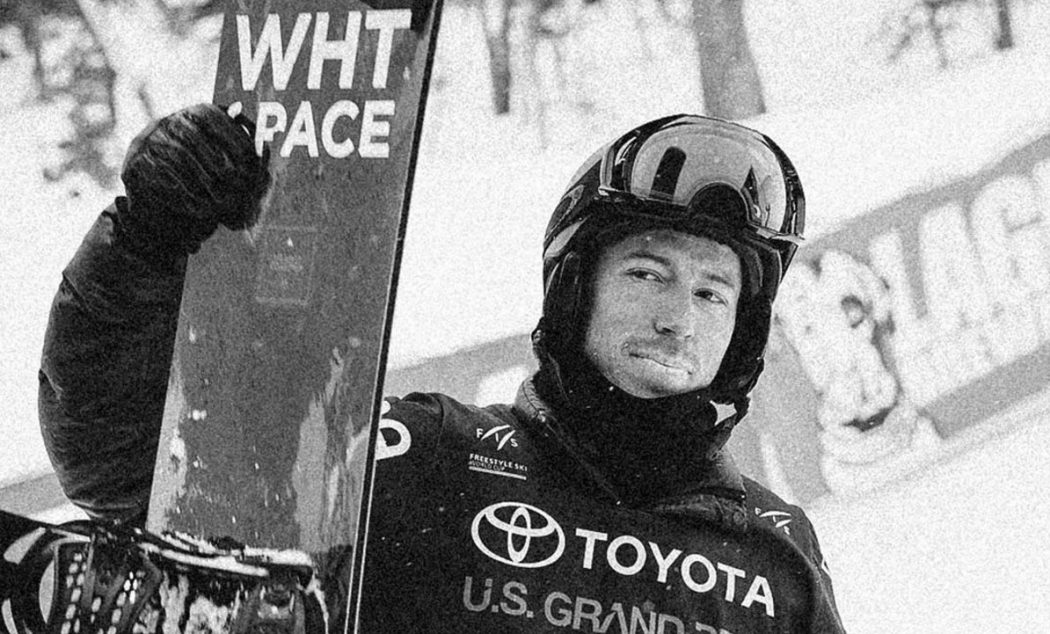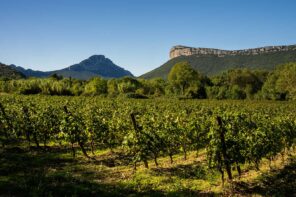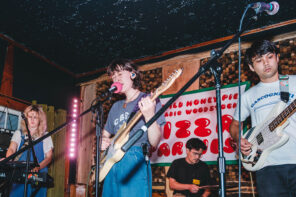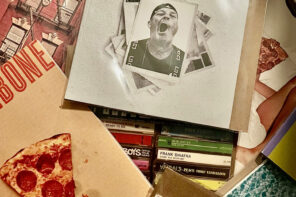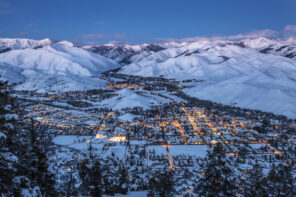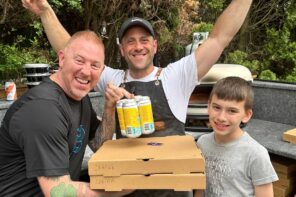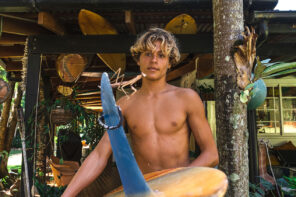Shaun White needs little introduction. But what we’d like to call out before you eavesdrop on our chairlift conversation with the world’s most well-known and decorated snowboarder, is that he’s likely the only 30-year-old we know that came from humble beginnings and recently invest millions of his own self-made bank account to purchase a stake in one of the top ski resort companies in the world, Mammoth Resorts. The mountains of Mammoth Resorts that see more than two million skiers and snowboarders each year.
We tell you this, because the evolving business side of Mr. White could end up being more remembered than his two Olympic gold medals, 15 X Games gold medals and 10 ESPY Awards combined— the more intricate, lesser-known sides of Shaun that this might be your first time meeting.
Safety bar down.
Whalebone: What are your favorite places in New York City?
Shaun White: I have an apartment in New York. It’s a place I love to spend time but I also really love the Bowery Hotel, Bond St. Sushi, Acme and I like to go to…it’s a Mediterranean spot in Brooklyn. I think Heath founded that place, right? Heath Ledger. It’s called Cafe Mogador.
WB: This next one is more of a situational question, good luck. Someone has stolen all of your money and your assets in the greatest robbery of 2017. It’s gone forever, you can’t get it back. But Whalebone, somehow managed to come up with a duffel bag full of unmarked bills that we gift to you, we give you after learning about your unfortunate circumstances. However, the robbers also took the money counter. So we estimated that the duffel bag is full of about $215,738. What do you do with the cash?
SW: Oh my god. Okay, someone just stole all my shit, all my money and phones and things. But you guys were real good guys and got me a duffel bag full of money, $200,000?
WB: Around that, yeah.
SW: I’d probably go to Vegas. Just play the penny slots forever. Or I’d give it all to Hugh Hefner. I heard he’s hurting right now. Sold the mansion, you know. He might need it more than me. Or I might look up Dog the Bounty Hunter and see if he can track down who stole all my stuff for a flat price of $200K. All that, or just give it all to a charity. It’s just money after all.
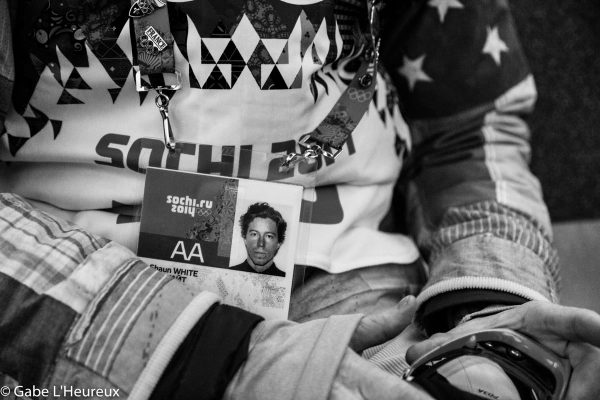
Photo: Gabe L’Heaureux
WB: If you could trade your uncanny ability for snowboarding for another superhuman talent, what would that be?
SW: Man, I’d probably just be like an insane white rapper. You get to go by various aliases. You can never be called out for wearing too much jewelry. You’re kind of set. And then you don’t have to be physically fit. No one’s after you…you’re good.
WB: Do you feel that everything happens for a reason or are we the reason that things happen?
SW: Everything happens for a reason, for sure.
WB: If you could give your fifteen-year-old self one piece of advice, what would that be?
SW: “Hey man, invest in Friendster. People already invented Facebook but…Friendster.” And then just laugh.
WB: In life there’s ebbs and flow and highs and lows, it’s all part of it. So that in mind, what’s the best Tom Cruise movie of all time? What’s the worse Tom Cruise movie of all time?
SW: Well, the worst has got to be Cocktail, right? But then again I am going to go ahead and say it’s his best also. A well-rounded movie. Good job, Tom.
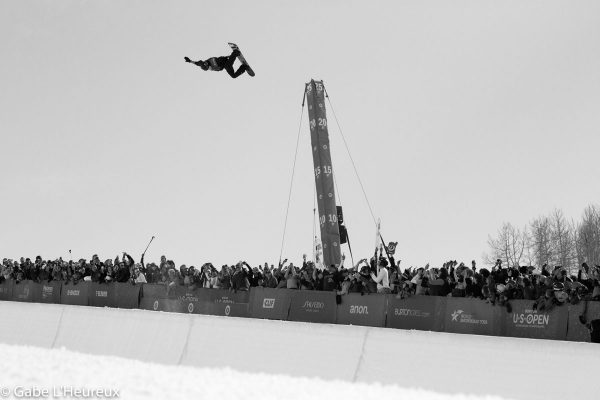
Photo: Gabe L’Heaureux
WB: A hundred years from now, what do you want to be remembered for?
SW: That’s tough. I remember seeing a photo of Kelly Slater on a wall at a clothing store I visited. I think it was Double RL or something. The store was very well done. I was in there and they had like Steve McQueen’s poster on the wall and they had all these like black and white photos. Legendary things. I saw Kelly Slater’s photo up there, I was like “Huh, it’s a little odd that he’s up there.” But then again, it totally makes sense because he’s like this kind of god.
He’s been in sports for so long, such a well-known guy. He represents more of a vibe. I didn’t see a surfer when I looked up there—I said, “Oh, it’s Kelly Slater.” You know? So I would only hope that I would represent that. It’s not being looked at as a snowboarder, it’s just being looked at as a man of a certain kind. You know, like someone that did something that others said couldn’t be done. That I lived my own life rather than trying to follow the footsteps of others.
WB: What is the future of snowboarding?
SW: The future of snowboarding. Man. The Chinese? Half-joking. It’s going to be neat whatever it is. I don’t know if it’s going to be done on mountains, to be honest. This snow and global warming and all this stuff is kind of a rarity it seems. We’re now talking about an indoor snowboard park to train. It might not take place on the mountain anymore. Air + Styles, live events, things like that— it might be the way of the future of the sport.
WB: Let’s talk Air + Style. What is the genesis of the Air + Style events. Meaning how did it go from inception to what it is today? And its reputation—which is a very positive reputation it seems.
SW: Yeah. The event started about 21 years ago in Austria. Basically, it was the the idea of a guy named Andrew Hourmont and he thought, “Hey! Let’s have a big snowboard jump and we’ll have a big party afterwards.” That was it. It was like, hey, let’s hit a jump and then we’ll, après-ski, we’ll just party super hard after we do this thing, we’re all party together. So what happened was, something very small and simple like that became very popular because all the snowboarders wanted to go party and hang with each other and do it all in Austria.
What happened was all the world’s best started to go to the event and all of a sudden, since world’s best are there it’s a world class event—all the heavy hitters are there. So now all of a sudden, it boosted the reputation of the event, grew dramatically and sponsors became interested. It was really the beginning of the discipline we now called big air, which is becoming an Olympic discipline in Korea. So all the way from there to here.
As the event grew in popularity, I took notice and I was an invited rider at one point and it became one of the first major wins for me—I became known in Europe because I beat some of the pros. When this event was huge, I was really young. In 2003 and I think 2002 before, I forget. But after that nobody in half-pipe got into the Olympics. All these different things started happening, so my focus went elsewhere but that event continued to grow and then they moved into Beijing. About six years ago they asked me to host the event. Not to compete, just to host because I have a good half-pipe style. So I agreed.
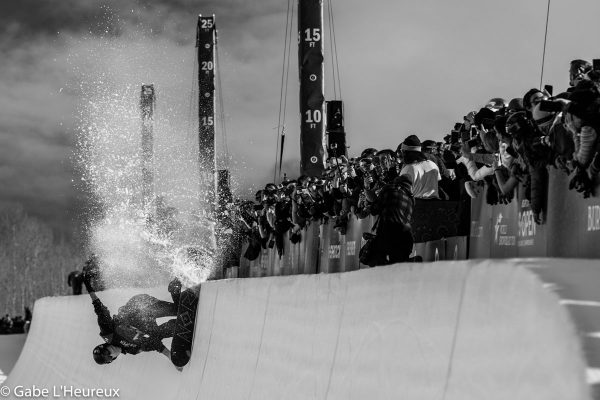
Photo: Gabe L’Heaureux
Oakley sunglasses, one of the big sponsors of theirs, was also a sponsor of mine. It worked all around for me to go out there. Upon arriving, I was just like, “Wow, this is such an amazing event.” My name’s on the thing, like the bird’s nest of Beijing, the scaffolding jump. Also, getting people up to the mountain is always a difficult task. So they decided to take the scaffolding-type jump that you could bring into the city.
All of a sudden, the number of attendees is growing dramatically because you’re bringing the snow jumps into the city. Into the actual cities, to people that don’t get to see it oftentimes, it’s exciting. Then once that happened they decided, hey, why not do this in the bird’s nest in Beijing. The Olympics just happened there and they weren’t using it so they were hungry to have sporting events there.
We booked it and started doing the event there. I hosted it and right after I hosted it, I was like okay, how do I become a bigger part of this? What can I do? I ended up buying Air + Style from Andrew probably two years ago.
My idea for the event was a revamp of something that I attended a long, long time ago called the MTV Sports and Music Festival. It happened in Memphis, Austin and other places and it was just like this all out, action sports, mixed with music and live TV broadcasts, all these things happening. It was a really, really cool thing to be a part of.
My idea was to take something like that and combine it with the current ideas of the world, like music festivals and sporting events like the X Games, and then really blow it out. Take his idea of like, “Hey, we’ll have a sporting event and a big party,” really accentuate upon it and bring it to the U.S. for the very first time ever. We did that probably three years ago at the Rose Bowl and, since then, we moved venues to the Coliseum. It’s growing dramatically.
We still have the three stops that take place—China, Austria and LA’s the last stop. Now that Air + Style has the big air portion, and the sporting portion of the festival is now an Olympic discipline, we’re coming up on the Olympic years and actually in the running to become an Olympic qualifier. You would be watching your favorite band play and turn around and there’s some kid living his dream of going to the Olympics in downtown LA, for snowboarding.
All the athlete’s are freaking out because they’re so excited to see their favorite music acts. And then all the music guys are just like, “This is where Mark McMorris is going to be??” They know all the sporting guys. It’s just a weird connection between sport and music. A lot of musicians you talk to, they want to be athletes—look at Drake or Steve Aoki. Aoki, he snowboards, he’s got a foam pit at his house. I don’t even have a foam pit.
WB: How does all the reinvention, or helping an iteration of this event work in your overall playbook?
SW: It’s a great question because a lot of people look at my life and career and certain things that I’ve done and they don’t know the whole story. They go, “Oh, well this seems like a traditional athlete. He’s got a clothing line. He’s got a festival.” But no, these things all started from a very grassroots sort of place. I was a competitor at this event. I became a host of the event. I know the owner very well. I asked him to sell me his event.
Now we work together on building it and tying it in with the Olympics and these things to give it meaning, give it something special. Working on clothing, man, I was like 15 and I got a Primo snowboard, that grew into a snowboard, a pair of boots, whatever, and then my brother and I got together and designed a whole line for them. That line grew into this and then we started clothing at Target. Then Target grew into doing a whole men’s line at Macy’s now. That’s where we kind of go back to, I feel like things happen for a reason. You know?
WB: Two important lessons you’ve learned from running and owning business ventures.
SW: This is such a shitty way to say it but it’s really setting goals. Like what do you want to do? And knowing that. What do you really want to do and once you can answer that, then you can finally just keep taking every little step toward that goal. So many people start out doing something and then they get discouraged by someone or they get swayed in a different way and a direction and they kind of compromise their dreams and their goals. Stay the course, I guess, would be the takeaway.
What’s the second thing? I’d say it’s the little things. The attention to details. I’ve always found that it’s the little things that matter in the end. If you took the time to make sure your wristbands are really cool; If you took the time to make sure every little detail is done with quality and love, I think that people appreciate it and it goes further then you would imagine. It’s like sending a thank you card after receiving something great. It’s the little things that go a long way.
WB: Best fireplace in the world? Where is the location, or the hotel, or the house, or who/where is the best fireplace in the world that you can think of?
SW: Oh man, fireplaces. The Bowery Hotel’s got a really bitchin’ fireplace. In New York, it’s such a thing, you just pile in there. When it’s really cold and windy, they set up these curtains. You’ve got to come through the curtains to get in there, it’s just awesome.
WB: What’s an invention you would like to see in your lifetime?
SW: Oh my god. Where’s the airplane that just gets us to Europe in 20 minutes. You spend so much time wasted on airplane travel, there’s got to be a way to just get there. Get it done. And then once we figure that out, we can go to other planets for lunch. “Where are you? I’m playing tennis on the moon, dude. Sorry, my service isn’t great. I’m on the moon.”
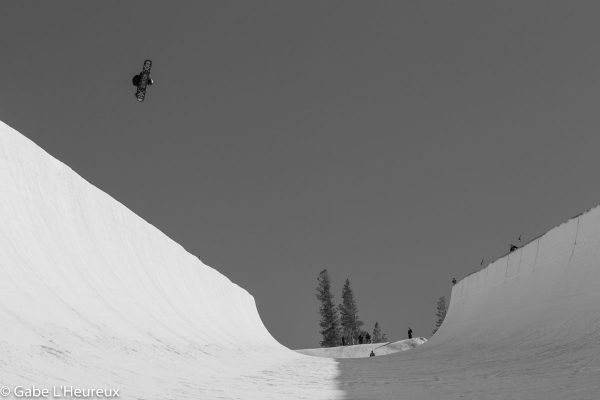
Photo: Gabe L’Heaureux
WB: How do you do in the water? Do you surf at all? If so, is there a favorite spot that you’ve been?
SW: I’m named after Shaun Tomson (former world champion surfer from South Africa). I was supposed to be a surfer, to be honest. I’m from Southern California. Actually I’m somewhat of a failure. I am. Thanks for bringing it up [laughs]. My dad just loved surfing. But it was the classic, ‘he put me in the water too young, with a hard board.’ I went under, got swirled, barely got my breath, came up, got air and the board hit me in the face. I was done.
But, I got back into it later in life probably around like 14 or 15 and yeah, I love to surf now. I’m decent out there. You know, boards and I get along. Skating, surfing, snowboarding, those things. I’m alright, but I don’t nearly spend enough time doing it as much as the other sports.
WB: Have you ever been to Montauk, New York?
SW: I have, yeah. I stayed at a rental house up there with some friends of friends for this thing called Shark Attack with Ben Watts a year or two ago. Super nice setup out there. I remember surfing solo at the beach with no one around and I’m just sitting there thinking, It’s super murky out and the clouds are low, rolling in and out. Am I really going to be the guy who gets attacked by a shark at a thing called Shark Attack. I’m going to get out of here.” That was my surfing experience up there, but I heard there’s better breaks around there, so I’m looking forward to going back.
WB: We read a story about you being much younger and going to a competition that you paid for travel and rooms and everything on your last dollar. The other, older competitors may or may not have gone out the night before the contest and been over-served. As we heard, this led to the group of contestants trying to form a pact about evenly splitting the winnings in the instance of anyone won. After a quick calculation you realized that the split winnings was not enough to cover your travel home so you stood against the older guys and said “no”—which was largely unpopular—and then proceeded to win the entire event. How much of that did we just make up? And can you share the real story?
SW: No, that happened. You’re pretty on track. It was pretty heavy at the time because I was 15 and everybody else was in their mid-to-upper-twenties. They basically got over-zealous the night before and said, it wasn’t them, it was the jump that was bad.
They wanted to split the money and I was just like, “What?” I feel great, I’m riding great, had a new trick and was thinking, “I really want to do this” so I just said, “Naw, I don’t want to split the money. I want to compete.” And I won, man. I won fifty grand and a car. I was 15 and I was like, holy shit! Talk about staying the course. They hazed me so hard.
It’s not being looked at as a snowboarder, it’s just being looked at as a man of a certain kind. You know, like someone that did something that others said couldn’t be done. That I lived my own life rather than trying to follow the footsteps of others.
My family had flown out there with me, paid for the flight ourselves, paid for the hotel, paid for the food. Where there’s only supposed to be three people in the room, but you got everybody with you, you know? There’s only two tickets to get the free breakfast, so we’re down there with a backpack putting all the extra fruits and sandwiches in our backpack to take back up to the room so everybody can eat.
Also, after I won, it was Japan and they offered me a beer. I thought, “oh cool”—and then when I was on the podium, they handed me some champagne and I was on the podium and I was like, alright. There’s this video where you can hear my mom in the crowd yelling, “Shaun. Shaun! No!” That was my first adult drink ever.
WB: Have you ever been starstruck?
SW: Hell, yes! Obama. I remember being like, “Oh okay, I’m going to meet the president, this will be like meeting a famous guy, any other famous guy.” But you kind of forget, he’s the president. It was wild.
WB: Was he cool?
SW: He was awesome. He was talking about watching the sports on TV and he said, “I don’t know how you do that.” And he lifted his leg up like he was doing one of my airs or whatever. “How do you do those?” He seemed like such a normal guy. But obviously he was the President of the United States. It was just a heavy scenario and it was nice to see he was a normal guy, but I remember being kind of starstruck when he first came through. Also, Trinidad James. He does the “Gold all in my watch.” That one’s embarrassing to say, but he got me.
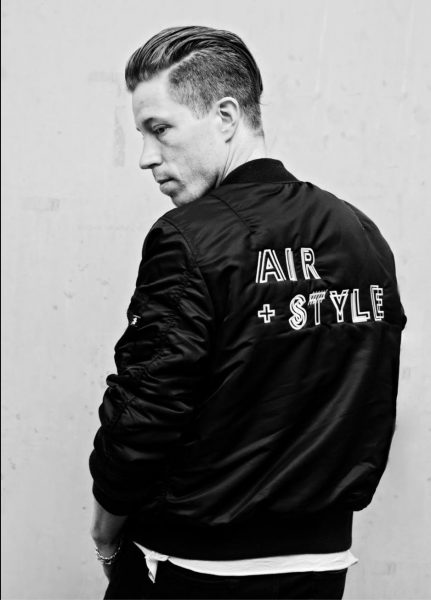
Photo: @shaunwhite
WB: Favorite skater of all time?
SW: Christian Hosoi.
WB: Main source of creative influence?
SW: Music but it’s not always just listening to songs, it’s more the thinking and creativity of the artists. The influence crossover of musicians and athletes—from sports to music and back to sports, is wild to see.
WB: Last one. If someone reading this meets you in an elevator what is the code word they should say so you know they really read this?
SW: If you’re a very attractive lady, just go ahead and hit the red stop button—but otherwise maybe say, “Whalebone Magazine.”
WB: We greatly appreciate your time, thank you.
SW: Thank you guys, that was fun.
Stay up to date with Shaun and Air + Style via their Instagrams, @shaunwhite and @airandstyle. You can catch all the Air + Style tour info, as well as live streams, via their website. Special thanks to Shelby Meade for bringing this one together.

